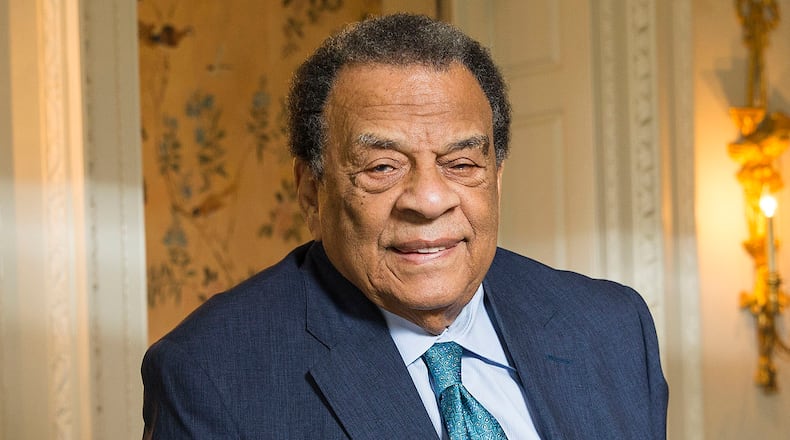Andrew Young paused and winced a little Monday when asked at an online meeting of the Rotary Club of Atlanta about the removal of Confederate statues and monuments.
“I get in trouble,” when he talks about that, the civil rights activist and former congressman, mayor and United Nations ambassador said. But, he launched in anyway.
Removing statues ought to be up to the communities, he said. The state, however, passed a law forbidding their removal.
Then Young veered into the troublesome part, for him.
The carving that honors three pillars of the Confederate States of America, generals Robert E. Lee and Thomas “Stonewall” Jackson and President Jefferson Davis, that is chiseled into the side of Stone Mountain’s granite ought to be left in place, he said.
A growing chorus of Black leaders have called for razing the monument. Those who destroy it would be “like the Taliban,” Young said.
The militant Muslim faction dynamited the 1,300-year-old statues of Buddha carved into mountainsides in Afghanistan in 2001.
Young thinks the Stone Mountain carving ought to be left in place as a teaching tool about history.
“I think we have got to be together in defining what we want the future to stand for,” he told the Rotarians. “It doesn’t mean destroying the past. It means learning from the past.”
He cautioned the members that he would want to see substantive change in equality and policy, rather than merely a movement dismissing symbols. Former Democratic Gov. Roy Barnes excised the Confederate flag as a significant symbol on the state flag, but it likely cost him a second election, Young said.
“We lost an election, and the price of that wasn’t worth it,” he said.
Young made his remarks as he spoke for about a hour to the Rotary Club about the current demonstrations, how they compare with the civil rights movement and what he believes is needed to move society forward into a more just one.
About the Author
Keep Reading
The Latest
Featured



